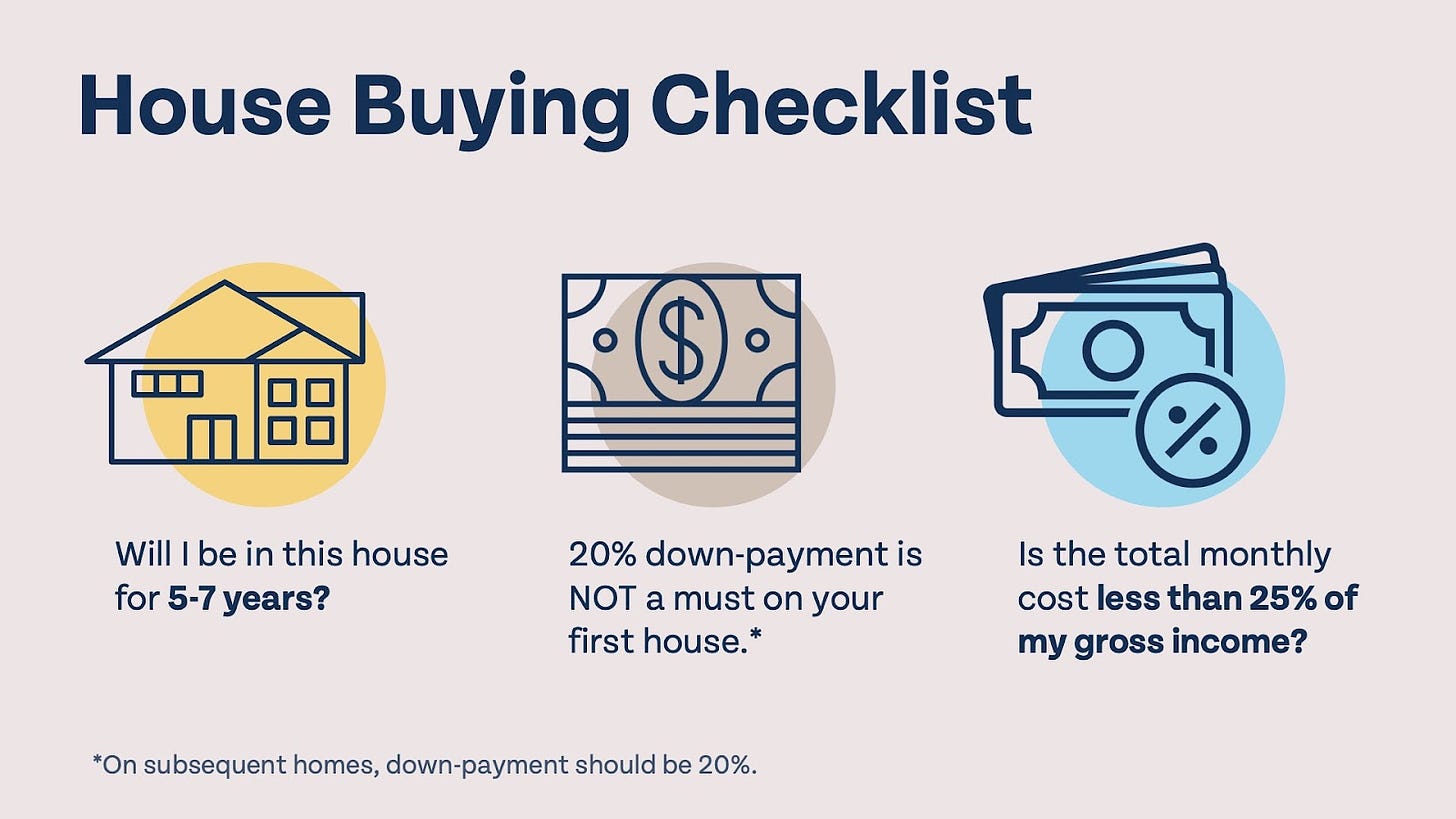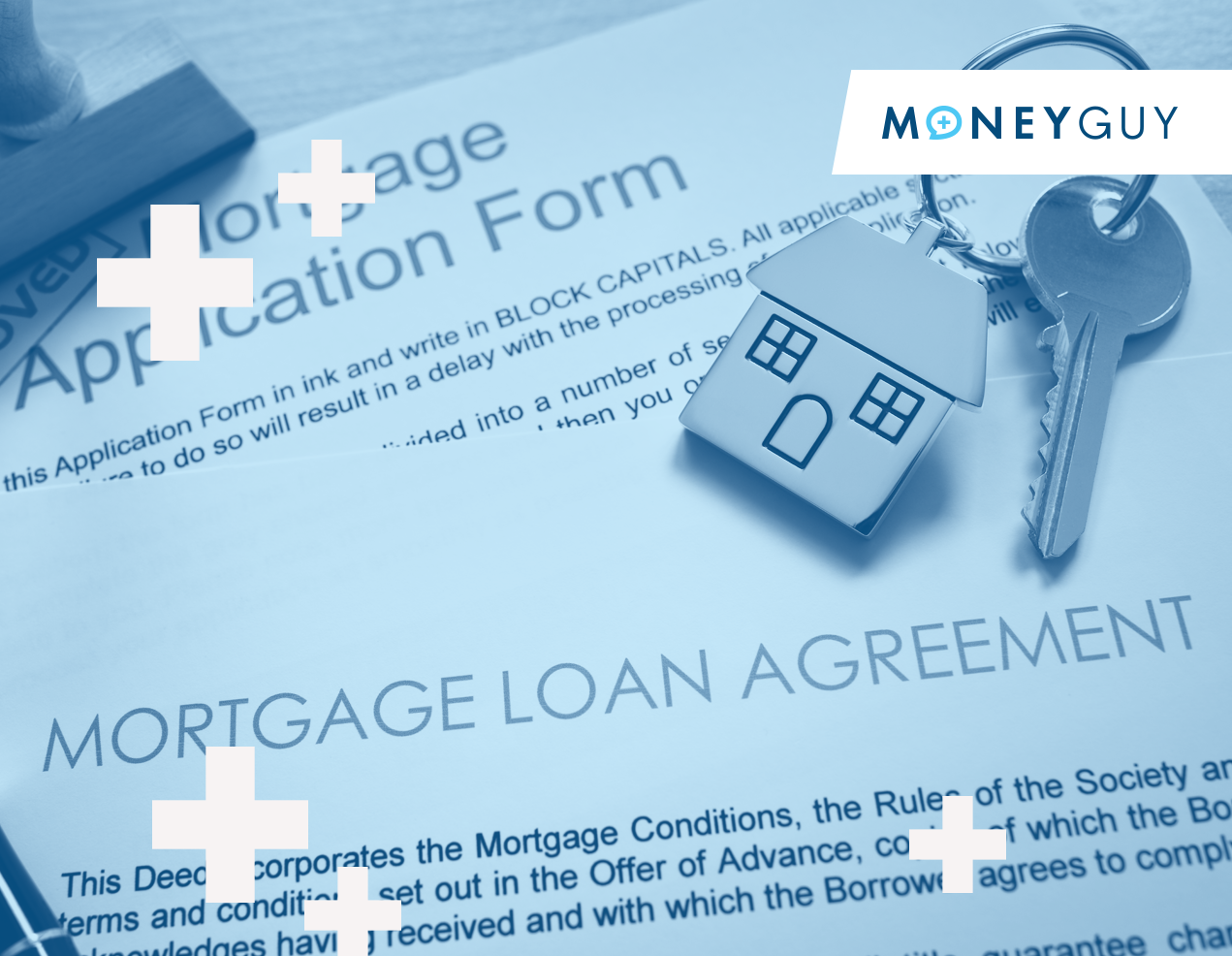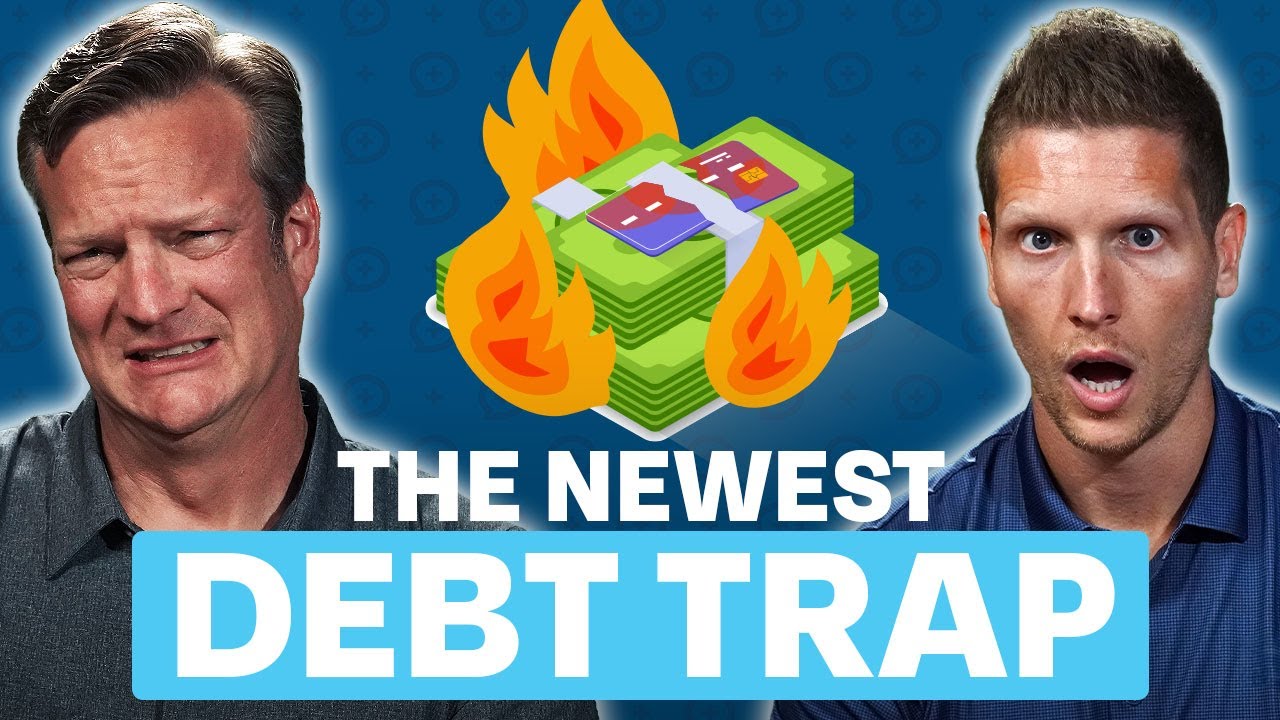The housing market is currently full of fear. Buyers are afraid of buying at the top of the market, or not buying before prices go up even more, depending on how you view the short-term future of housing. Many potential sellers are locked into their homes at low mortgage rates or are having trouble finding a buyer, with rates making their home unaffordable for many. I have a friend who recently sold his home, not long after listing, but after cutting the price. He is afraid that home prices are about to collapse and was relieved to sell it. A record share of Americans, 85%, say that it’s a bad time to buy a home.
Our favorite investing uncle Warren Buffett says “to be greedy only when others are fearful.” What about buying a home when others are fearful? Could now be considered a good time to buy a house?
Should you buy a house now?
I’ll give you the answer now: there’s no way of knowing when it’s a good time to buy a house – if you are trying to time the housing market to buy at the most affordable point. How many buyers thought it was a good time to buy in 2019, 2020, or 2021? The buyers I know thought they were buying a home at the top of the housing market, yet home prices kept rising.
Home prices could keep rising, or they may not. We created our Money Guy home-buying rules to prepare you for home ownership no matter what direction the market goes in the short-term.
How to buy a home in 2024
A home provides shelter and a place to sleep for you and your family. It’s the single largest investment most families make, but it is much more than an investment. That’s why when you are buying a home, you should consider much more than the financial performance of your asset (home). Are you going to be living in your home for at least 5-7 years? A longer time frame is necessary when making such a large investment. If this is your first home, you can put down 3-5%, but on subsequent homes your down payment should be 20%. Aim to keep the total monthly cost to less than 25% of your gross income. Check out our full home-buying checklist for more questions to ask yourself before buying a home.

Why you should feel good about buying a home
If you can buy a home and follow our guidelines, you shouldn’t be concerned about the financial performance of your home in the short-term. There are many reasons to be optimistic about buying a home right now. Although forecasts can and do change constantly, the Federal Reserve is expected to cut interest rates as early as next year. Buyers who purchased at higher rates may have the opportunity to refinance their home when rates drop, making it more affordable.
Buying a home is a natural protector against inflation. Not only do home prices tend to rise during inflation, your principal and interest payment is likely locked in for 15 or 30 years. If rent and home prices continue to rise, you are protected from a large part of those increases with a fixed mortgage (however, your home costs will still rise when tax and insurance rates increase).
Which risk is greater, buying or not buying?
If you are someone that is on the fence about buying a home right now, the risk of prices dropping shortly after you buy is probably front and center in your mind. What many potential buyers don’t fully consider is the risk of home prices continuing to rise and possibly becoming out of reach. How many wished they would have bought in 2019, 2020, or 2021? Yet those years didn’t feel like great times to buy, either.
Homes generally increase in value over time, and they don’t often decrease in value. That means it rarely feels like a “good” time to buy a home, and if it is a good time to buy, it probably still feels like a bad time to buy a home because it likely means people are losing their jobs and the economy isn’t doing too well.
Our Money Guy rules are designed to work for you no matter what direction home prices go from here. If you are ready to buy a home following our rules and are concerned about the future of the housing market, don’t overlook the risk of not buying a home. If you’ve checked all the boxes on our home-buying checklist, the risk of waiting could be greater than the risk of buying.













